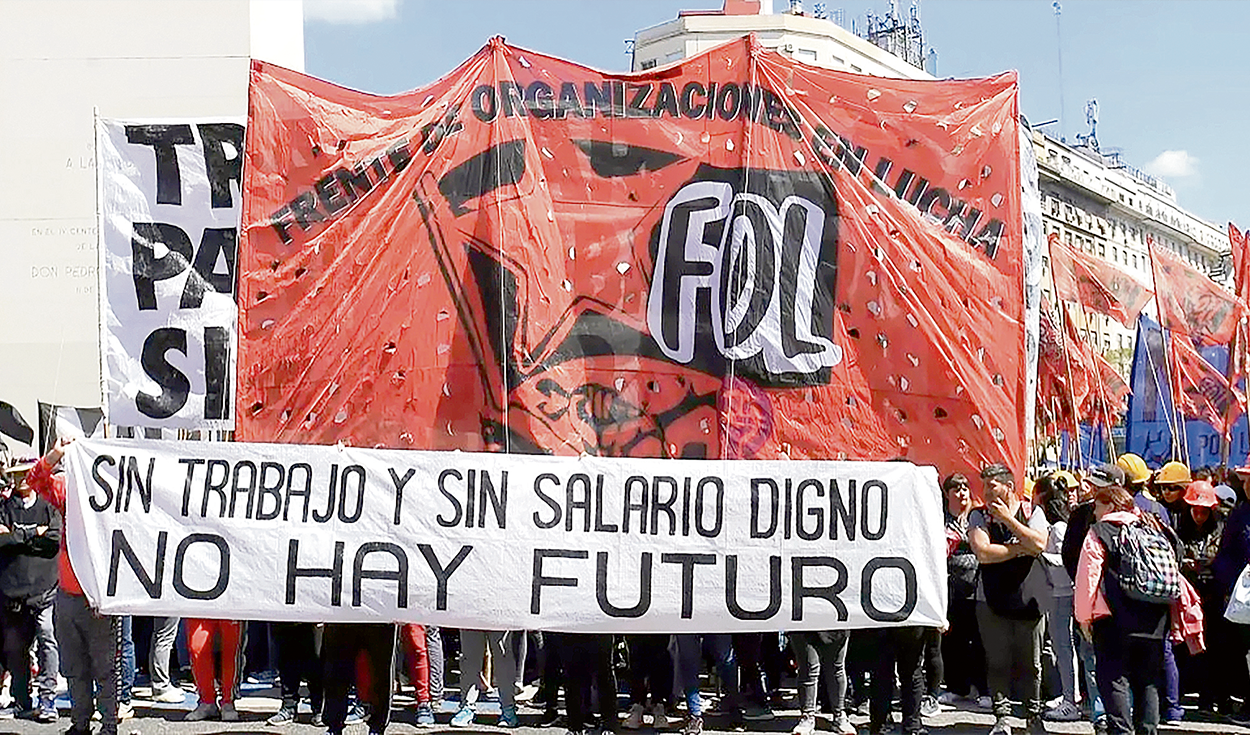
After negotiations between the Governmentcompanies and unions, the president of Argentina, Javier Milei, established by decree a 30% increase in the minimum wage.
This adjustment will occur in two tranches: in February it will reach 180,000 pesos (US$210 at the official exchange rate) and, for March, it will reach 202,800 pesos (US$235).
The unilateral decision of the ultra-liberal president places the update of the minimum wage well below the 85% desired by workers. According to the General Confederation of Labor (CGT), “a long tradition of tripartite social dialogue was broken.”
Long before raising his salary, Milei was never keen on doing so.
This increase comes after knowing that inflation in January, shortly after Milei’s arrival to the Pink Houserose to 254% in year-on-year terms, and is far from the 211% in December and 160% in November.
Furthermore, it occurs in a context where poverty in Argentina It reaches 6 out of every 10 people, looking in the mirror of 65.5% of the population seen between 2001 and 2022, they recall from the BBC with data from the Social Debt Observatory.
Collateral
Since his way to the presidency, Milei – with chainsaw in hand – announced that he was going to reduce public spending in order to balance fiscal accounts. At the genesis of his administration, the economy achieved, after a decade, a surplus: more was collected than was spent.
However, with the rise in poverty, the outlook for ordinary Argentines remains grim. For five years now there has been a drop in the real salary of workers, to the point that cnn places the Argentine salary as the fifth lowest in Latin America.
The IMF cut its growth forecast GDP of Argentina, placing it now with a loss of 2.8% for the current.
Pensions also rise
In addition, the 27.18% increase in the pensions that retirees will receive since March was made official. The minimum gross income will go to 134,446 pesos (US$156) and the maximum will go to 904,690 pesos (US$1,056).
It had been anticipated that Javier Milei’s administration was going to grant a bonus, but there is no information about it.
According to Clarín, the increase in pensions is much lower considering the inflation expected for the first quarter of this year, which would be between 65% and 70%, translating into a loss of up to 25% for older adults.
Source: Larepublica
Alia is a professional author and journalist, working at 247 news agency. She writes on various topics from economy news to general interest pieces, providing readers with relevant and informative content. With years of experience, she brings a unique perspective and in-depth analysis to her work.












